The Vida V1 Pro is late to the electric party but its arrival has sparked interest. We went to Jaipur to make its acquaintance.
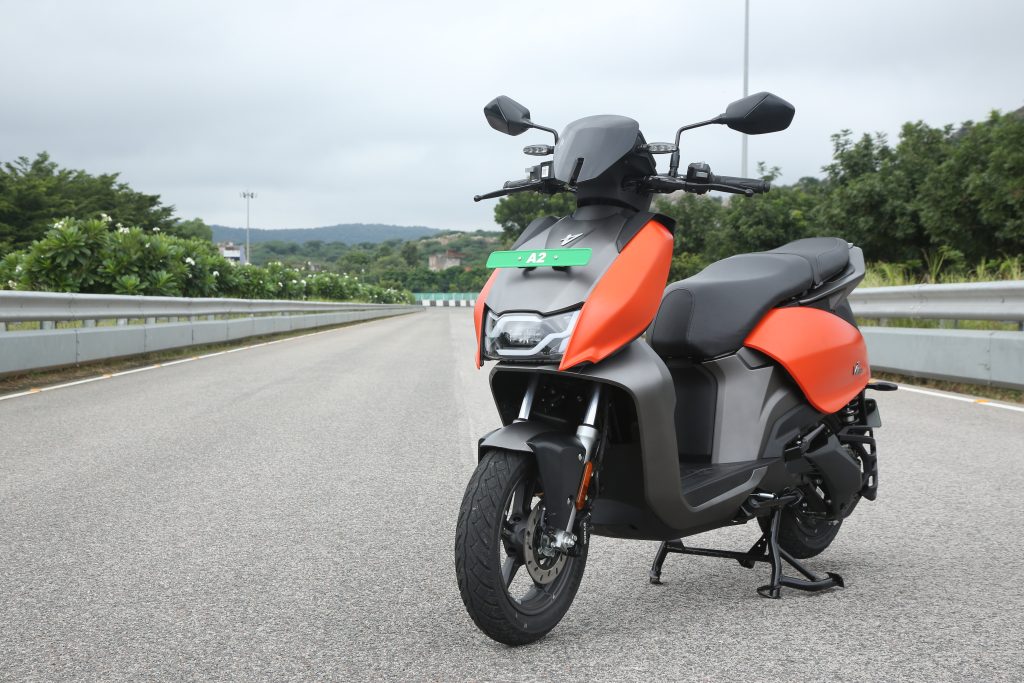
Story: Joshua Varghese
Photography: Hero MotoCorp
They say good things come to those who wait and we have been waiting for a long time to see Hero’s electric scooter. As one of the largest manufacturers of two-wheelers in the world, Hero MotoCorp’s entry into the EV market in India may just be the confirmation some of us were waiting for. Yes, electric scooters have definitely arrived and the migration from petrol to electricity is only going to gain momentum. The Vida V1 range will spearhead that effort for Hero.
We were invited to Hero’s research and development facility in Jaipur to experience the scooter at their performance and handling circuits. On the design front, the Vida V1 will certainly turn heads, start conversations and maybe even arguments. Familiar as it may seem, there are many aspects of the bodywork that are a departure from the conventional fare. The LED headlight is in the middle of the front apron, normal enough but the apron itself has a split shape; something that is not commonly seen. Instead of a single-piece seat, the Vida gets a split unit. It sits atop a tail-end that appears more utilitarian than elegant but the paint schemes on offer do a good job of improving the appeal. Overall, the styling may appeal to some instantly but I feel most will need time to come to terms with it.
All the information the rider needs is available at a glance thanks to the seven-inch touchscreen. With crisp colours and a neat layout, it packs a lot of useful information that is easily accessible. The switchgear is simple to use and while the quality of plastic is nothing to complain about, it does not feel premium. The same can be said of the mirrors and seat as well. The latter feels rather flimsy when opened and needs to be placed in a certain way before the latch can click into place. That feels like a step back from the seat-lock mechanisms we have grown accustomed to. Of the two cavities under the seat, the one directly below the rider houses the batteries while the one below the pillion can be used for storage. The metal struts on which the seat rests limits convenient access to this space but it is otherwise spacious and capable of managing a grocery run with ease.
The battery capacity on the Vida V1 Pro is slightly higher than the Plus variant — 3.94 kWh, to be precise — and it is distributed between two removable batteries. That is one of this scooter’s unique points. The batteries can be charged separately and the scooter is capable of being powered by a single unit also. When charging at home, Vida claim that 0-80 per cent charge can be achieved in five hours and 55 minutes and fast charging to the tune of 1.2 km per minute is also possible. The combined range of the battery is supposed to be 165 km but we are yet to test that for ourselves.
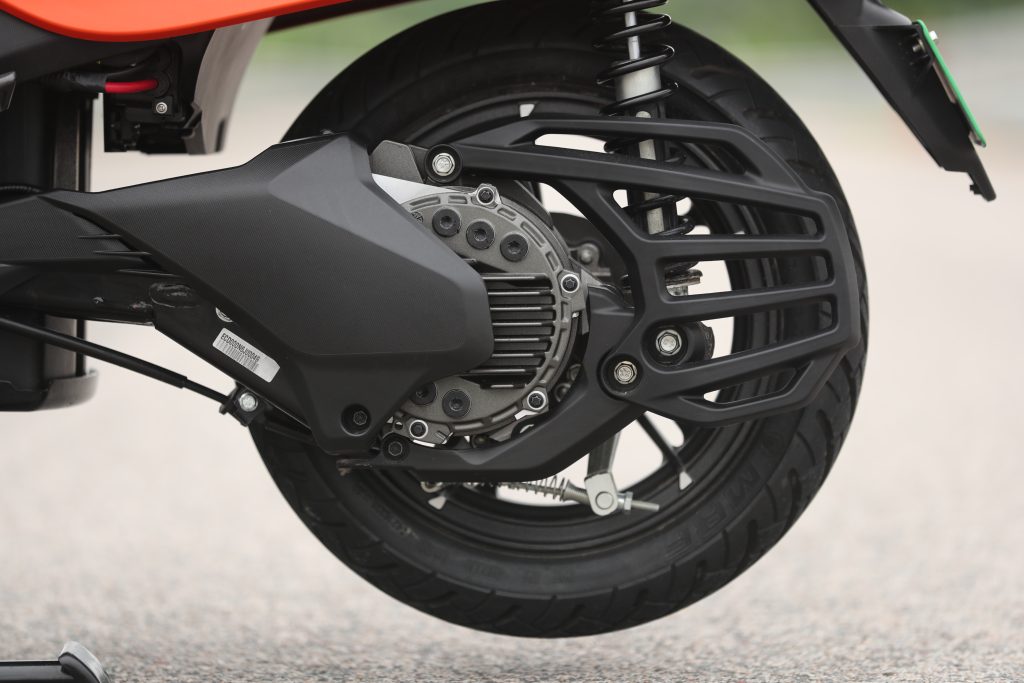
The motor, controller and transmission (reduction ratio) are integrated into one swingarm-mounted unit. The motor’s peak power output is six kW (8.2 hp) and to understand how that translates into on-road performance, yours truly utilised the long straights of the performance track. It was instantly evident that the Vida V1 is not a performance scooter but it was not a dull thing either. The throttle response was crisp and the power delivery was linear. The Vida V1 accelerated strongly from 0-40 km/h and eventually maxed out at 80 km/h. Based on that experience, I believe Hero have found that fine line that allows them to offer good performance while also maximising range and I cannot wait to check it out in traffic.

If the few laps around the handling circuit are anything to go by, then I feel that the Vida V1 will do well in the real world too. The scooter responds to steering input well, turns in nicely and remains composed throughout the corner; all traits that are indispensable for an agile urban runabout. Braking is also adequate, supplemented with the safety of the combined braking system.
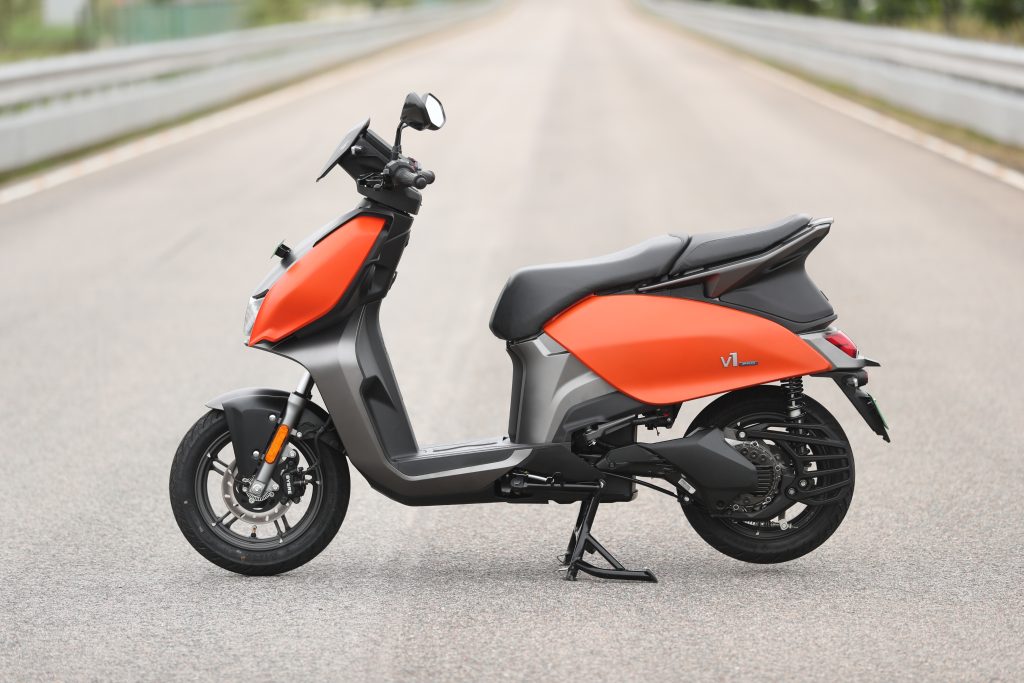
To summarise the Vida V1 Pro in a few words, it is apt to say that Hero’s first EV product does not disappoint but having arrived late to the party it is not particularly ground-breaking either. However, the fact that Hero have invested in a removable battery set-up shows that they have understood the challenges faced by the consumer and that should foster faith among its loyal clientele while also attracting everyone who has been sitting on the fence about electric scooters. The V1 Pro costs Rs 1.59 lakh (ex-showroom) which is Rs 14,000 more than the Plus for what seems to be just additional range. If you can live with the claimed range of 143 km that the Plus offers, then that appears to be the better buy. Oh, for the first phase of sales, the Vida V1 is limited to Delhi, Jaipur and Bengaluru.
Also Read: Chetak 2022 Update

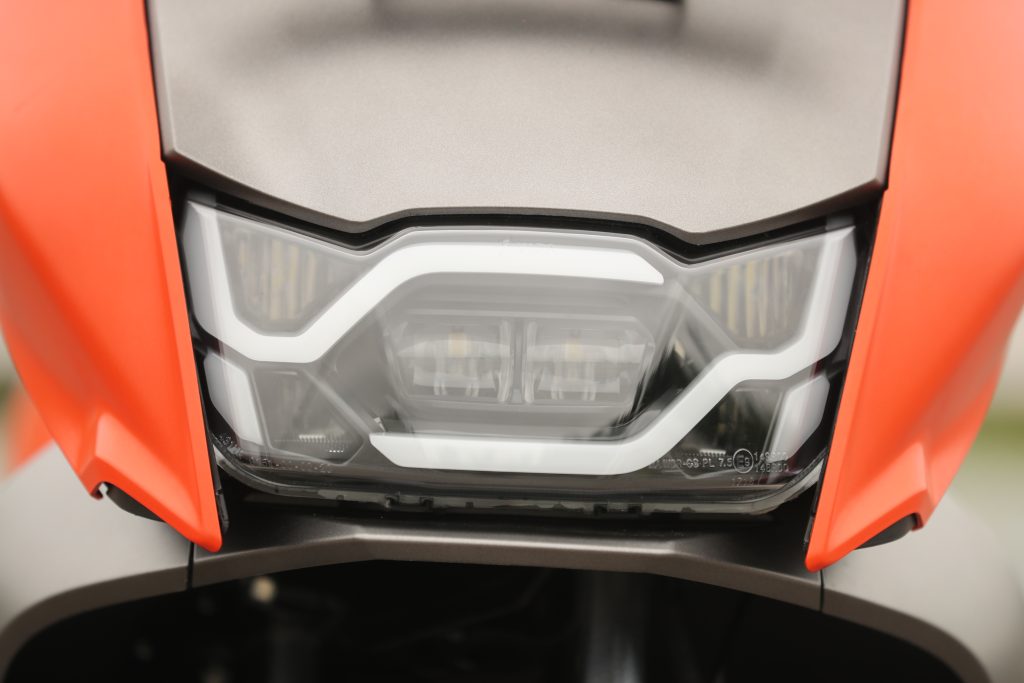
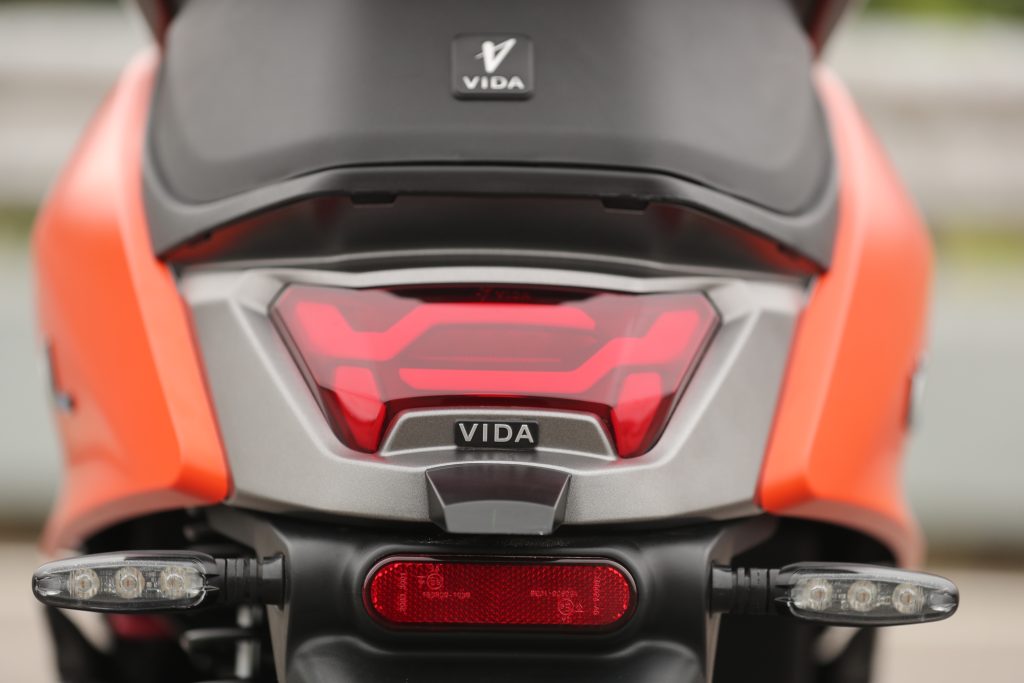
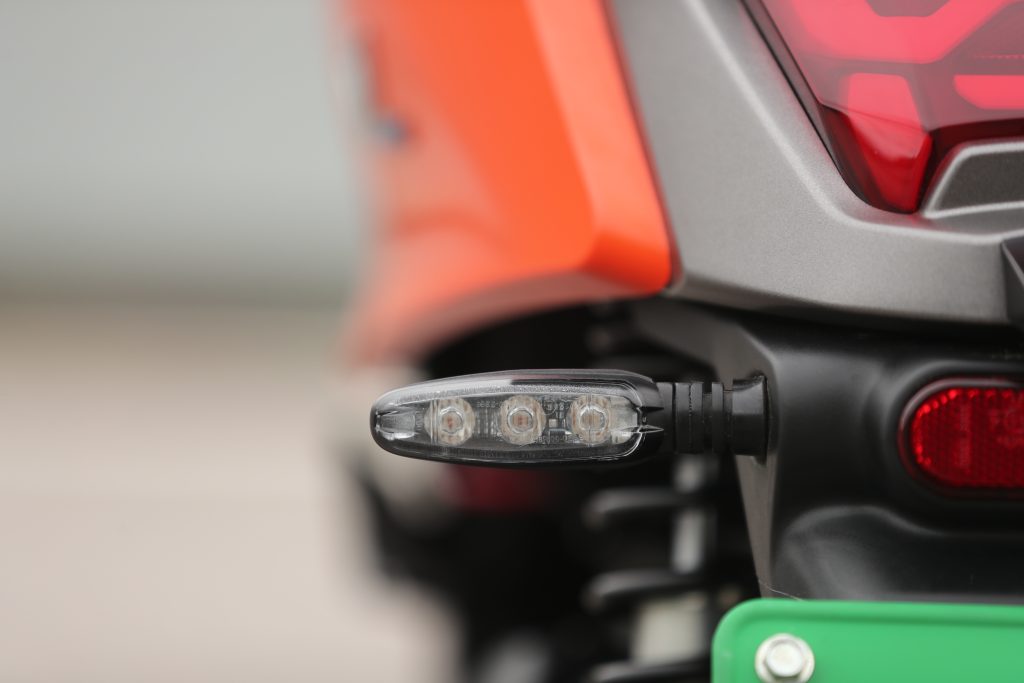
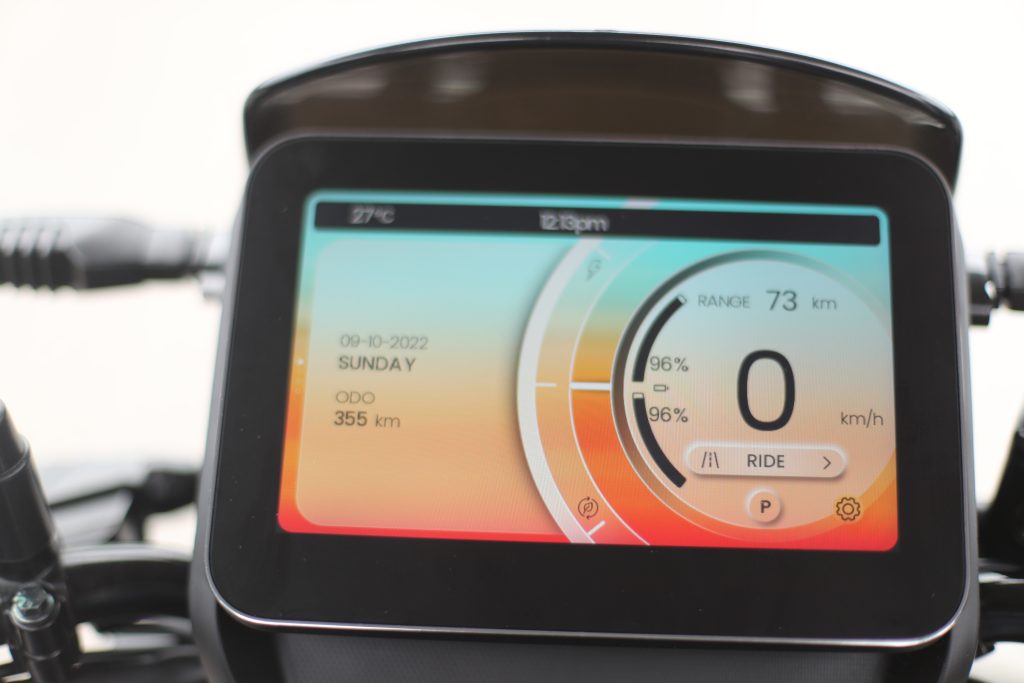
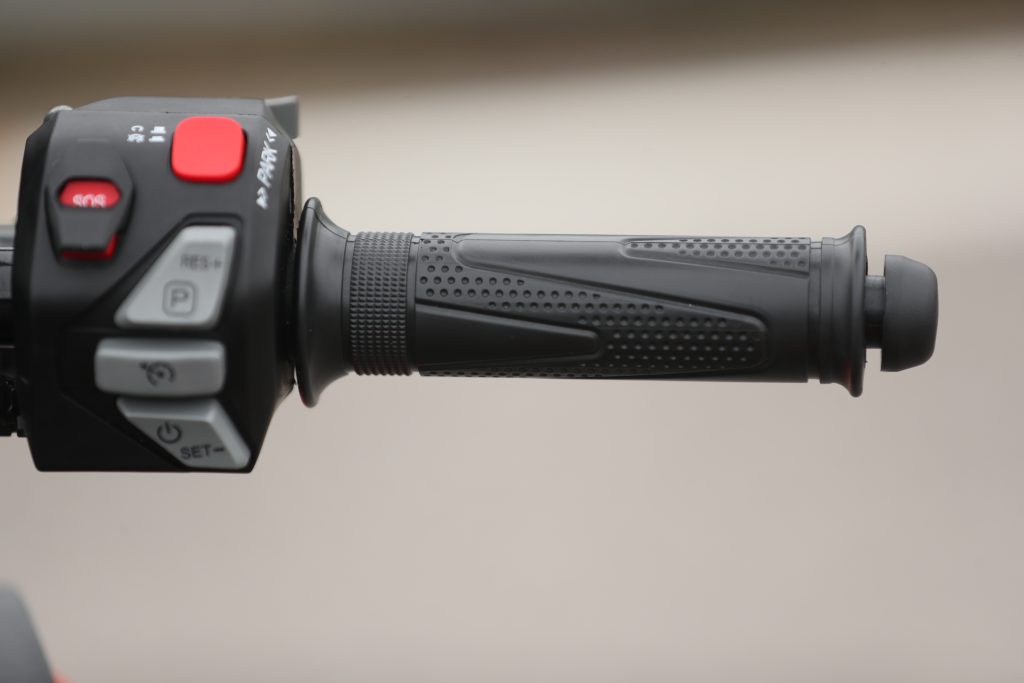
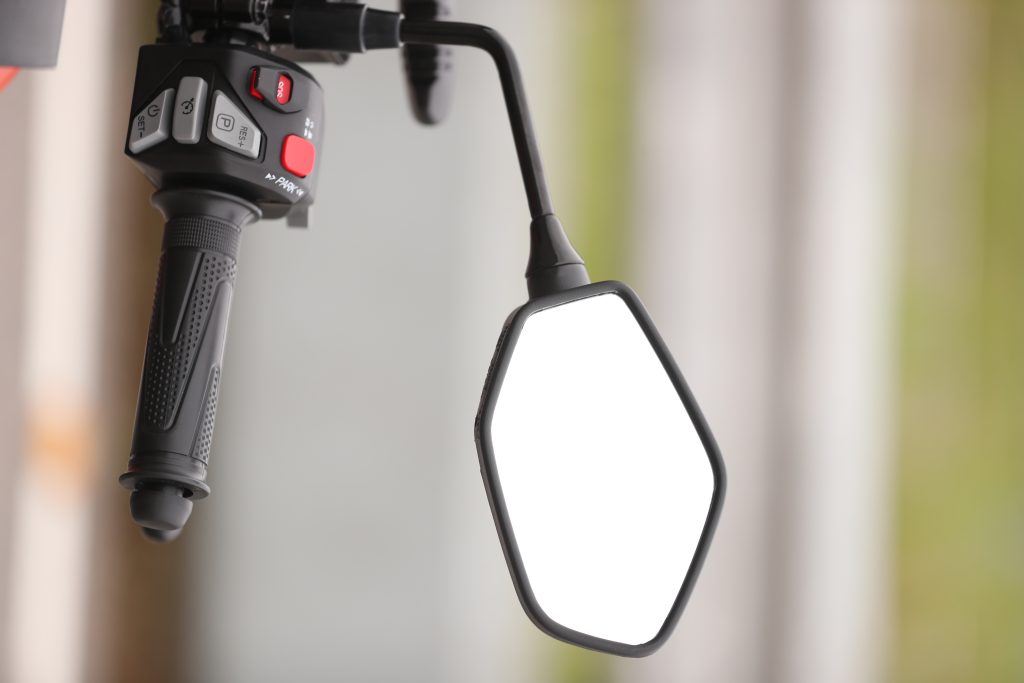
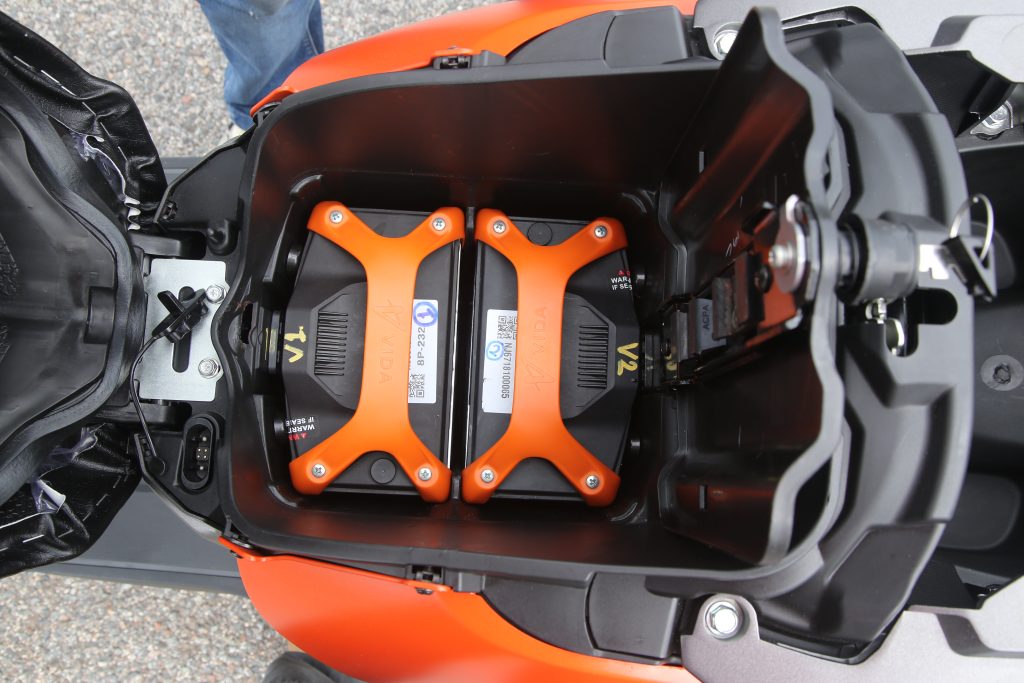
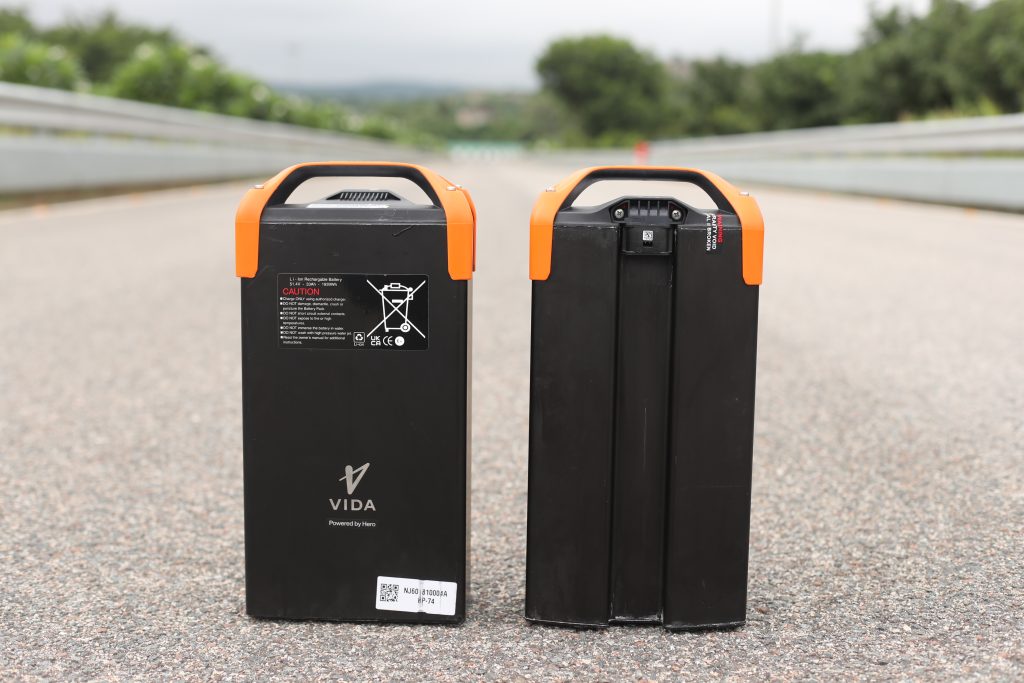

Leave a Reply